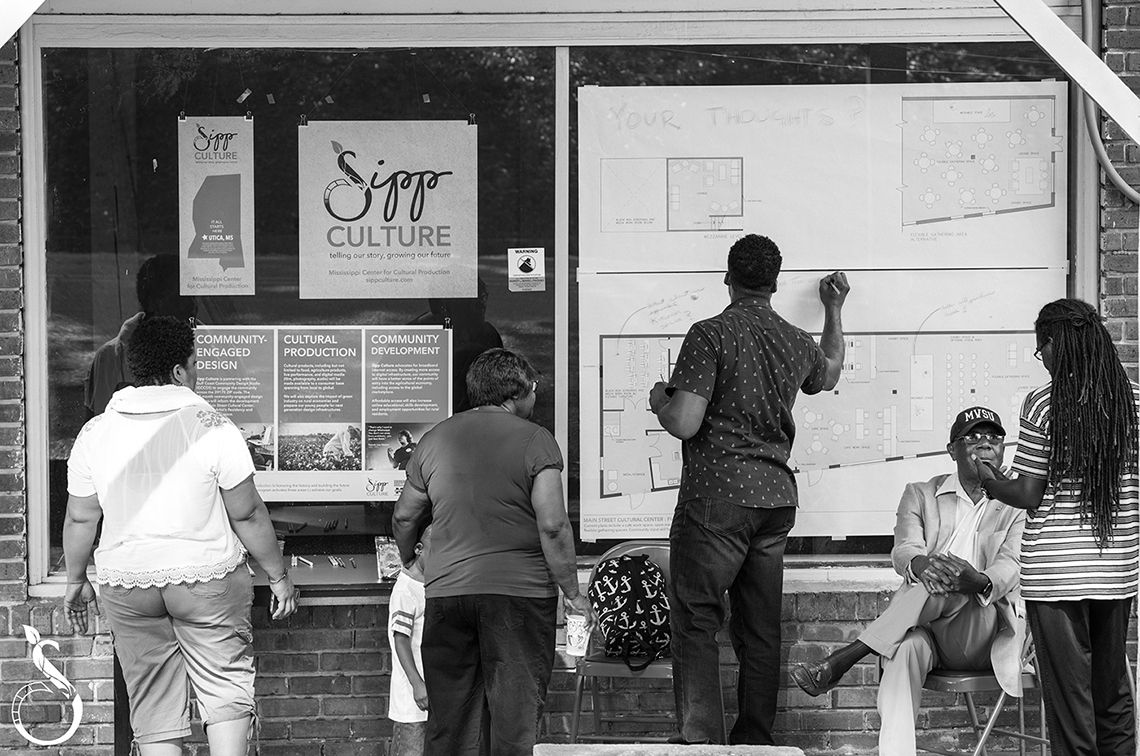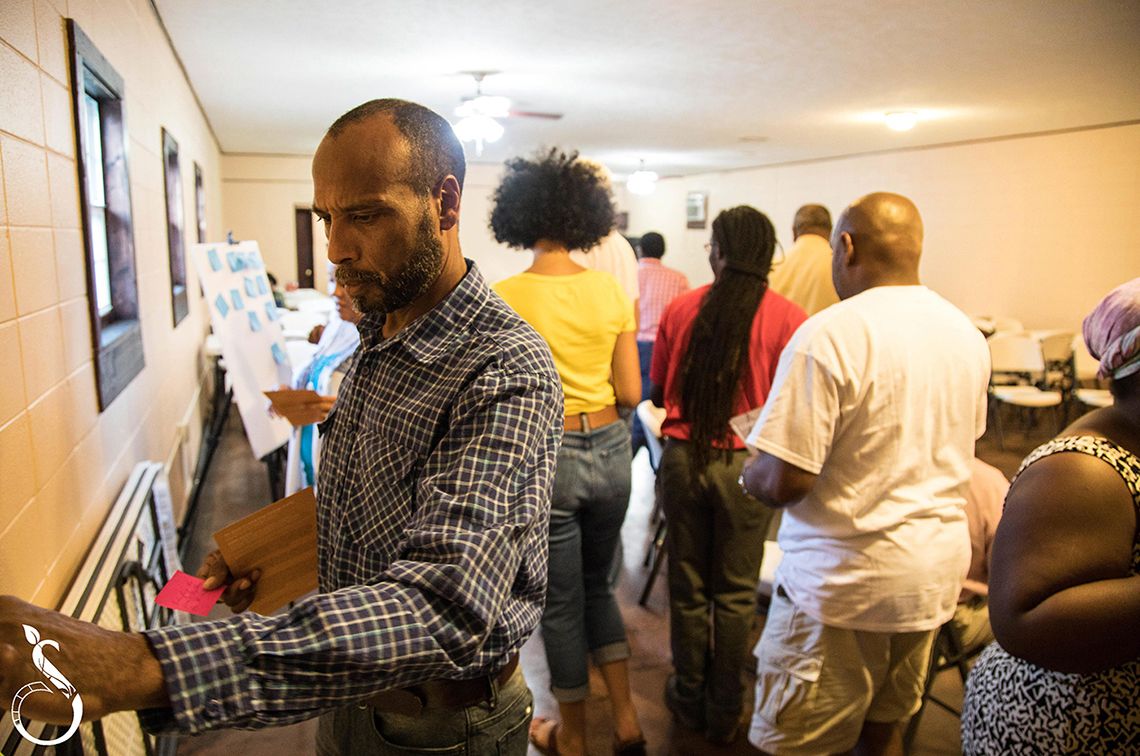10 SECTORS
10 SOLUTIONS
Artists and Community Change
ECONOMIC DEVELOPMENT
The ECONOMIC DEVELOPMENT community development sector is comprised of individuals, organizations, and policymakers who are working to increase economic opportunity, stability, and financing availability for low-income individuals, families, and communities. Such economic development endeavors seek to equalize the inequitable economic playing field through community control of labor (e.g., worker cooperatives), fair labor policies (e.g., community benefit agreements), and small business development (e.g., low-interest bank or municipal loan programs), among other methods. Increasingly, this sector is taking a “triple bottom line” approach: one that follows community-driven practices that prioritize long-term positive outcomes for “people, planet, and profit.”
PROJECT NAME
SIPP CULTURE
ORGANIZER NAME
MISSISSIPPI CENTER FOR CULTURAL PRODUCTION
LOCATION
UTICA, MS
For the past 20-plus years, multidisciplinary artist Carlton Turner has spearheaded local- and national-level projects that center ideas of manhood, race, art, culture, and social justice. One of his current endeavors is leading an “economic revolution” in his home community of rural Utica, Mississippi: population 840. With the Mississippi Center for Cultural Production, Turner is empowering local young people to become creative content producers (filmmakers, photographers, musicians) and take ownership of their own narratives and their community’s. As they learn to use the technological tools of the storytelling trades, they also learn about Utica’s history and their connections to it. Sipp Culture also involves young participants in local agricultural production, showing them the art of nurturing community relationships through food, and demonstrating the present-day viability of age-old economic strategies rooted in land cultivation. Turner says, “We have been told for so long that our communities are poor and have little or nothing of value to offer, so our children grow up looking forward to the day when they get the opportunity to leave. ... [Our work] is to recalibrate the measurements by which economic prosperity is calculated, and in the process, redefine wealth for our rural community.”
10 SECTORS 10 SOLUTIONS:
Artists and Community Change



